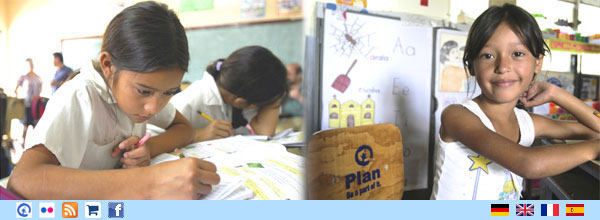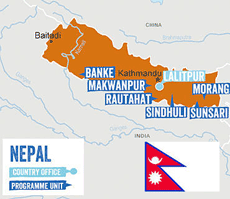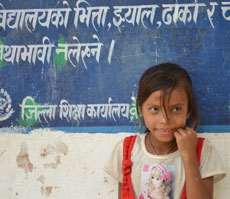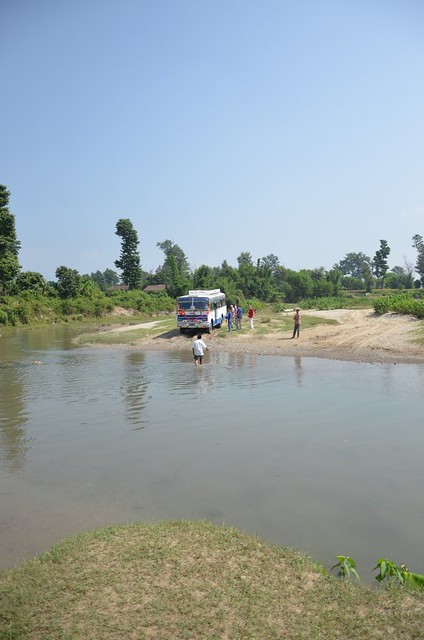
The projects
» Completed Project: Scholarships for Kamalari-girls in Nepal |
|||
 |
|||
Project until: |
Support total: |
||
End 2019 |
28.910,- € |
||
This project has sufficient financial resources. |
|||
70 scholarships, 100 grants for school
visits, 30 university grants and 25 study groups financed. |
|||
| In the west of the Himalayan state Nepal lives an ethnic group
called the Tharu. Among its traditions is the system of Kamaiya – serfdom – of which girls are particularly affected.
Although this tradition of exploitative child labor has been banned in Nepal since 2000, child labor still belongs to many
Tharu girls’ everyday life. Working days from 16 to 18 hours are common. Therefore they are called “Kamalari - hard working woman.”
Between the ages of six and 16 girls are sold as a maid to landowners and other wealthy families for a minimum annual salary of
40-50 U.S. dollars. Most often they are not able to continue school afterwards. Without close contact to their family, they are
exposed to exploitation by their employers (often also sexual harassments) without protection. Or they encounter slave traders who
sell children to procurers in India without the knowledge of their families.
|
|||
Plan 2006 has been working for the elimination
of exploitative child trafficking, at first only in the District of Dang and since early 2010, also in the provinces of Kailali and Kanchanpur.
Kamalari girls are freed from their labour conditions and provided with legal and psychosocial support if necessary. So far, nearly 2,000
Kamalari girls were freed. Former Kamalari girls are prepared to return to state schools in remedial courses. For older girls pre-employment
trainings and assistances are offered to facilitate entering a profession.
|
|||
Through savings groups and micro-credits adult former Kamalari obtain an opportunity to build a life for themselves. Awareness campaigns in villages warn families about the dangers of this form of serfdom. In children's and youth clubs girls and boys learn to know their rights. Plan supports the families with agricultural training and the distribution of goats and pigs. This way their children are free to go to school, do no longer have to contribute to their family’s income and do not have to be sold. Through media campaigns, the establishment of child protection committees and networking of local and national actors the implementation of children’s rights and abolition of Kamalari practice is promoted. Former Kamalari girls are encouraged to get involved against the Kamalari practice. The broad-based project activities include the release of the girls, their reintegration into their families, their support for education and occupation, the placement of UN children's rights, improving the incomes of their families as well as media and lobbying work on site. The project contains the following components: |
|||
| 1. Support for school education of former Kamalari 2. Training on micro-credit and savings programs 3. Income generating activities 4. School Construction 5. Support for a two-year scholarships at the college 6. Legal assistance and counseling for sexual abuse |
|
From these components Warner 4 Girls foundation took over responsibility for number five and raised funds for 70 former Kamalari-girls in Nepal to complete a two-year college degree. This project aim was planed for 2013 and successfully completed in 2012 already. Additionally we wanted to fund the grants for 100 girls to attend school for three years. For each girl 45 euros were needed by 2015. Again the project aim was successfully completed earlier, namely in 2013. |
|
- 20 girls will get a 6-month vocational training, which improves practical skills e.g. in housekeeping, cooking, sewing, gastronomic services, driving or repairing consumer electronics. Plan will organize trainings, on how to set up small businesses to establish income opportunities. Costs for one scholarship: 240 Euro. - 30 girls will start a 2- to 3-year university study in health care, agriculture, engineering, hotel management, interior design or fashion design. |
|
| During the whole training and study period Plan will meet the fellows and their parents on a regular base, to check progress and support in case of difficulties. During the project it has been found that significant learning difficulties have occurred for many girls due to the often inadequate or absent school attendance in their actual school age of 6 to 16 years. We therefore support the founding of groups of about ten ex-Kamalari girls, who regularly exchange and support each other about school matters as well as personal interests. One participant from each group will be chosen as a leader / champion to receive special training on group leadership and organizing joint meetings. They can then represent the interests of their groups externally or network with other groups of former Kamalari girls. The cost of supporting start-up and training champions is € 100 per learning group. In total, 25 study groups were established. Additionally 70 scholarships for college visits, 100 grants for school visits and 30 university grants were financed.
| |
Film about the Kamalari project |
|
Photos from our visit to Nepal |
|
| If you are looking for more information about the country or the project, do not hesitate to contact us at: info@warner4girls.de | |


